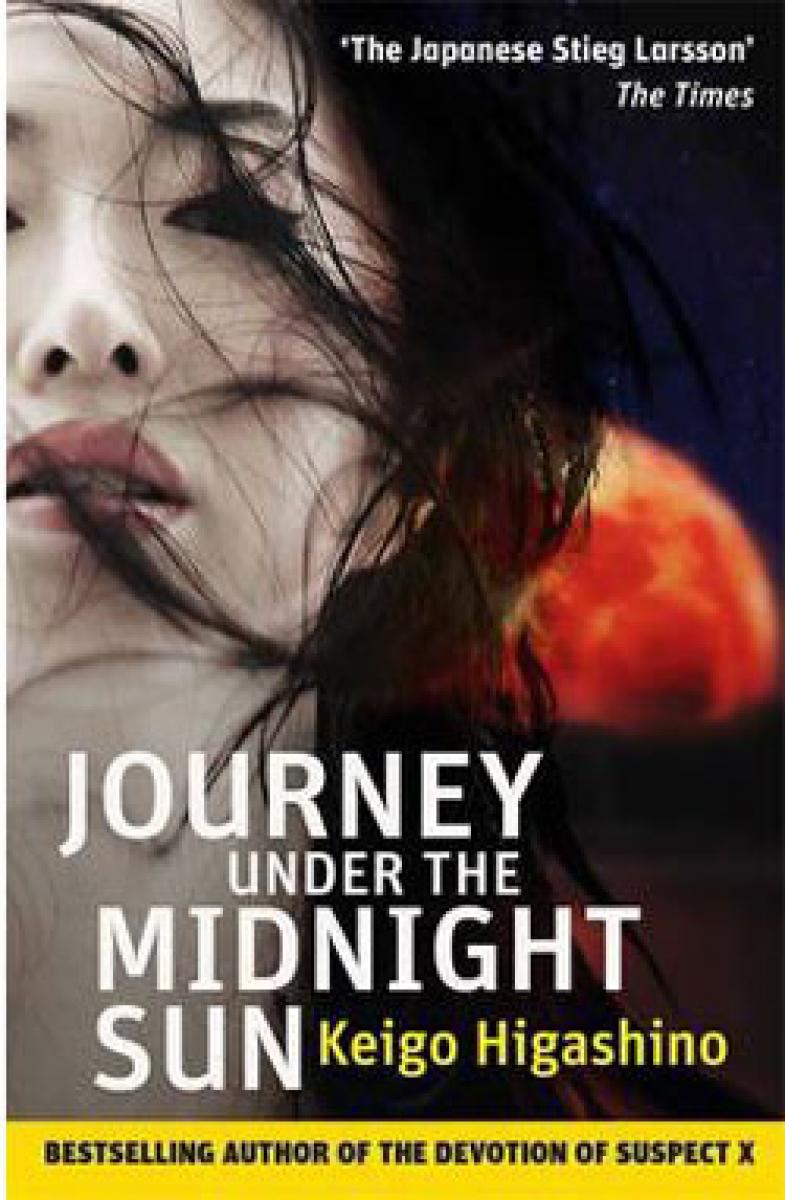Live
- Six Useful Strategies to Control Your Heart During the Pollution Season
- Phalodi Satta Bazar Predicts Close Race in Maharashtra Assembly Election 2024
- Federer Pays Heartfelt Tribute to Nadal Ahead of His Retirement: "An Epic Career"
- Odisha holds successful mega investors roadshow in Singapore
- PGTI Tour: Top stars to fight for honours in Servo Masters Golf
- SC upholds termination of LIC employee for absenting himself without intimation
- ‘Stone me or shoot me, won’t spare anyone,’ says Anil Deshmukh after discharge
- Siddaramaiah, Shivakumar turning Karnataka into Pakistan: K’taka BJP
- Zimbabwe records 70 suspected cholera cases, one death amid new outbreak
- Babri demolition day: No Assembly proceedings in Bengal on Dec 6
Just In

Journey Under the Midnight Sun’ is Keigo Higashino’s third novel translated into English by Alexander O Smith with Joseph Reeder. It captures the enigmatic relationship between Ryo and Yukiho through twenty years of crime and mystery surrounding their lives.
 Journey Under the Midnight Sun’ is Keigo Higashino’s third novel translated into English by Alexander O Smith with Joseph Reeder. It captures the enigmatic relationship between Ryo and Yukiho through twenty years of crime and mystery surrounding their lives.
Journey Under the Midnight Sun’ is Keigo Higashino’s third novel translated into English by Alexander O Smith with Joseph Reeder. It captures the enigmatic relationship between Ryo and Yukiho through twenty years of crime and mystery surrounding their lives.
When a middle-aged pawnbroker (Kirihara) is found murdered in Osaka, 1973 homicide detective Sasagaki investigates the case. But, this is not our story. The murdered guy, his wife, key suspects in the investigation and even the lead detective fade from view quickly. Our focus is directed to the young victims. Ryo, the dead guy’s blank-eyed son - his unblinking eyes hint at a cold interior. And, Yukiho, the composed daughter of a single mother (the alleged mistress of the dead guy) - her calm demeanour, an indication of an oncoming storm.
The reader follows their lives through the eyes of people around them. Yukiho’s pristine beauty (described more than once as looking like an actress), is her weapon of choice as she finds herself “indirectly” involved in horrific crimes; young girls get kidnapped, stripped and raped. Simultaneously, Ryo is involved in hacking and illegal programming crimes and later, disappears after a brush with the Yakuza gang.
At its core, the book is dark but at the surface is a story; beautiful (like Yukiho’s snow-white skin) and compelling (as Ryo’s hacking and programming). It transcends all genres and becomes a gripping tale held together by the two enigmatic protagonists with no apparent connection to each other. Our interest lies not in the details of the victims of the crimes but in the thread binding these happenings. Perhaps the only hiccup for the book would be the culture divide. Names like Matsuura, Kazunari, Nakatsuka, Kobayashi, Tomohiko and others keep coming in, which might be difficult for the average Indian reader and become a potential disconnect to the story. However, get through the first chapter, and that evaporates.
Sasagaki reappears twenty years later to stitch the puzzling events together. The final chapter takes the reader back to Osaka in a hard-hitting climax between Sasagaki, Yukiho and Ryo. However, even though the story ends, the mystery is not solved per se. Sasagaki is left guessing and so is the reader. This is possibly the point of the book, given the unique narration that never gives the reader the protagonists’ point of view.
Protagonists in the backdrop
What makes this an enticing read, is Higashino's narrative technique. Characters and events appear as chopped bits. It rewinds and connects to the lead pair later. The final part of the book goes back two decades for the final knot of the puzzle. This technique, though disorienting, keeps the reader on their toes.
In the 539 pages of epic narration, Ryo and Yukiho, though protagonists stay in the backdrop of the character from whose point of view the story is narrated. They are never directly involved in the events, yet the profound impact of their actions on everybody around them makes the reader yearn for a narration from their point of view.
The offspring from monsters have little to no chance for something that comes naturally to most of us—believing in the good. Bad is the only good they know. Evil is their reality forever.
There is no justification for crime. But, monsters are real and, when they attack children, what could be the result but a life of anger and hate for survival? ‘Journey Under the Midnight Sun’ is a reminder of the “Yin-Yang” balance in the world. No one is ever good or bad here. We are all capable of embracing darkness and this is something Higashino explores. He gets the reader to sympathise for these unlikeable characters. When villains lurk in close corners in your home, you do what it takes to survive the “big bad world” and killing your monsters, then, is not such a bad thing after all.

© 2024 Hyderabad Media House Limited/The Hans India. All rights reserved. Powered by hocalwire.com







